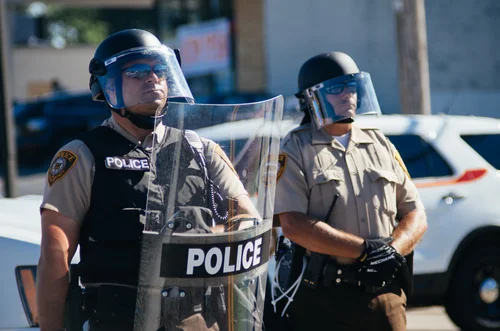A Boycott of the Oscars May Spark Necessary Change
‘Eye for an eye’ is an expression of retaliation. This oft repeated maxim derives its origin from the world’s oldest known written law, the Code of Hammurabi. In basic terms, the saying represents retributive qualities, “If you harm me, then I will bring that harm to you.” Protest remains an effective means of causing injury. Why? Two reasons: 1) The entity being protested against generally has unwanted attention for past transgressions publicized. and; 2) Protests in the form of boycotts lead to substantial loss of earnings potential.
The Montgomery Bus Boycott is a notable example of this loss of revenue – revenue generated by African American passengers who refused to ride city busses. After years of oppressive policy and treatment, African Americans successfully altered the segregationist history of the bus company.
Today, much needed debate stems from the country’s snail pace to progress and accommodate its racially diverse population. Included in this debate is a recent firestorm related to the Academy of Motion Picture Arts and Sciences. This organization’s largest awards ceremony, nicknamed “The Oscars” is rightfully under the national microscope for lacking diversity in the nominees it has elected to recognize for excellence in film. For the second consecutive year EVERY actor/actress nominated is white.
No, your eyes did not deceive you. For the second consecutive year, the Academy failed to nominate a single actor or director of color. Discrimination from participation in the industry’s signature event should make everyone wonder if a boycott is in order. Jada Pinkett-Smith released a video statement where she explains her reason for boycotting the event. Pinkett-Smith says, “Maybe it’s time that we pull back our resources and put them back into our communities, into our programs, and we make programs for ourselves that acknowledge us in ways that we see fit. That are just as good as the so called mainstream.”
Pinkett-Smith’s frustration with the Academy resonates with most people of color familiar with industry practices. Facts have a propensity for helping to properly shape a conversation. The facts are, the Academy of Motion Pictures is NOT a diverse body and it has historically NOT been interested in recognizing minority talent. Of the 6,028 Academy voters, 94 percent are white, 77 percent are male, and the average age of the voters is 63. This is the “old boys club” on steroids. No, more accurately, this a racist country club with a big red sign reading, “Whites Only.” Until the Oscar voters reflect the demographics of movie going audiences, outcomes like these can be expected. In 87 years the Academy has honored 2,947 award winners. Of those 2,947 award winners, only 32 represented racial minorities.
So how can people of color break this (no longer hidden) roadblock? Maybe boycotting is the answer. But are Will (Smith) and Jada the right people to spearhead this movement? Will and Jada represent a Hollywood “power couple.” But their influence does not match Steven Spielberg, Tom Hanks, Denzel Washington, George Clooney, or Brangelina (Brad Pitt and Angelina Jolie). Having other Hollywood elites join the boycott in solidarity would require the industry to change immediately. Some question whether Pinkett-Smith is the right person to deliver this message. Who cares? So long as diversifying the industry remains the central tenant of her efforts, it should be of no consequence who delivers the message. Her message was growing in popularity before Janet Hubert posted a video response.
Janet Hubert, formerly “Aunt Viv” of the 90s show “Fresh Prince of Bel-Air,” disagrees. She believes joining the Smiths in boycotting the Oscars would be career suicide. Hubert remarks, “For you to ask other actors to jeopardize their career and their standing in a town that you know damn well, you don’t do that.” Here, Hubert alludes to the potential for even worse exclusion of black actors and actresses if they joined the boycott.
“Here’s the other thing…they don’t care! They don’t care!” This idea in Hubert’s post should be the most heavily scrutinized of the entire post. If actors and directors of color have no support from their white contemporaries, nothing will change and the status quo will persist unaffected. Maybe Hubert is correct, and they don’t care. If that is the case, then it is the job of courageous actors to make them care.
Hubert’s frustration is realized early in her post when she acknowledges, “There’s a lot of sh** going on in the world that you all don’t seem to recognize. People are dying, our boys are being shot…left and right, people are hungry, people are starving, people are trying to pay bills, and you talkin’ about some mothafu**ing Oscars and it just ain’t that deep.” Her anger with what some perceive as hypocrisy by Will and Jada’s has gained traction. But listening to her concerns objectively should give everyone pause.
Her post concedes people of color are being victimized in other arenas. But she uses that fact to discredit Jada’s boycott effort. Life is not constructed of clean, single file progressions. We are complex beings with varying interests and concerns. Whether Hubert grasps this concept or not, we are fully capable of being outraged about multiple issues at the same time. Claiming the Smith’s ignore the plight of others opting only to speak out this year because Will felt slighted, completely disregards the heart of the issue – the issue of the Academy of Motion Pictures refusing to honor diversity. That is the issue.
The personal differences between Janet Hubert and Will Smith distract from that greater issue. Fans of film should be outraged by the 2016 snubs. There is no credible reason for Creed, Straight Outta Compton, Beasts of No Nation, and Concussion to all be shut out from the event.
Media consensuses are a rarity. When discussing the issue of 2016 Oscar snubs for people of color, we have one. Headlines from coast-to-coast have called out the Academy and demanded recognition of the memorable films left out. That media awareness and willingness to expose the issue in itself speaks volumes, to the importance of the issue. Do Oscar snubs compare to ending world hunger? No. But ending world hunger is not the standard we apply when seeking change. Do we want to end world hunger and violence? Yes. But do we also want to end the discriminatory practices of the Academy of Motion Pictures? Yes.
Social justice advocacy is worthy of a very tall pedestal. However, voicing opposition to an organization that is responsible for judging all films is also worthy. Drawing awareness of the Academy’s deficiencies is the only way for the Academy to take notice of its faults and work to amend them. We can’t know what needs fixing if we don’t know what needs fixing.
The Academy of Motion Pictures Arts and Sciences needs fixing. If they refuse, their fans will not only accept future boycott as inevitable, but they will encourage it.
























